Cluck and Dagger: The Ongoing Attack on Our Food Supply |
Clint McNichol
You all know that the globalists are attacking our food supply. What you might not know is that only about 50% of our food supply comes from large corporate farming operations. The rest comes from smaller farms and ranches across Canada.
So they are attacking those too.
Clint McNichol lives on Salt Spring Island in B.C. Well known as a summer tourist trap, most people don’t realize that Salt Spring Island is home to many small farms. In fact, that’s the bulk of the land use there.
Clint and his partner Ally breed chickens on their small farm. Or at least they did, until recently they were fined thousands of dollars and had to surrender their roosters due to noise complaints from non-farming neighbors.
And there are a number of very suspicious things about the entire case. From the fact that Clint and Ally have been targeted despite clearly have the support of the majority of the community, some of whom run small farming operations themselves, to an inexplicable increase partway through their case in the decibel measurement of their roosters crowing to just exceed the acceptable limit for nuisance noise.
And Clint and Ally are not unique. Small farming operations across Canada are being harassed in order to shut them down and transfer ever yet more food production to globalist controlled corporations, and so our government can destroy the food supply, leaving us with nothing except toxic manufactured foods and government subsidized bug proteins.
2 Comments
Leave a Comment Cancel Reply
You must be logged in to post a comment.
[Will Dove] (0:00 - 1:48) You all know that the globalists are attacking our food supply. What you might not know is that only about 50% of our food supply comes from large corporate farming operations. The rest comes from smaller farms and ranches across Canada. So they're attacking those too. Clint McNichol lives on Salt Spring Island in BC. Well known as a summer tourist trap, most people don't realize that Salt Spring Island is home to many small farms. In fact, that's the bulk of the land use there. Clint and his partner Ally breed chickens on their small farm. Or at least they did. Until recently they were fined thousands of dollars and had to surrender their roosters due to noise complaints from non-farming neighbors. And there are a number of very suspicious things about the entire case. From the fact that Clint and Ally have been targeted despite clearly having the support of the majority of the community, some of whom run small farming operations themselves, to an inexplicable increase partway through their case in the decibel measurement of their roosters crowing to just exceed the acceptable limit for nuisance noise. And Clint and Ally are not unique. Small farming operations across Canada are being harassed in order to shut them down and transfer ever more food production to globalist-controlled corporations. And so our government can destroy the food supply, leaving us with nothing except toxic manufactured foods and government subsidized bug proteins. Clint, thanks for coming on the show. [Clint McNichol] (1:49 - 1:49) Thanks for having me. [Will Dove] (1:50 - 2:32) Now I reached out to you for this interview after you sent me through an intermediary, somebody who knows us both, information about what's going on in your farm, your small farming operation on Salt Spring Island. So I want to start with that because I pulled up the map, the Google map, and it's one of those sort of mixed areas where there's small farming operations, there's acreages. But looking at your property, I'm seeing what looks like your neighbors across the road, your neighbor beside you, they seem to have small farming operations as well. So it's obviously not uncommon where you are, but what we want to get to is what is your area zoned for? Because I understand the zoning on Salt Spring Island, it has a big impact on what you can do there. [Clint McNichol] (2:32 - 3:08) Yes, correct. So we're zoned, we're a one acre parcel, we're just shy of an acre, 0.97 acres. Within our neighborhood, they're all about an acre or so. So we're zoned rurally, which was a mistake that the capital regional district who is actually enforcing this prosecution, they positioned us as being rural residential, which is a Victoria zoning, but we're absolutely rural within our zoning. We are zoned for agricultural purposes, of course, and home-based business, two of the points that apply in this case. [Will Dove] (3:09 - 3:14) Okay. Now we're going to be talking about CRD a lot. I'm sorry, you said it there and it's escaped me. [Clint McNichol] (3:15 - 3:16) The capital regional district? [Will Dove] (3:16 - 3:20) Capital regional district. Let's tell our viewers just exactly what that is because we're going to be dealing with them a lot. [Clint McNichol] (3:21 - 3:58) Sure. So the capital regional district, they're sort of an island base, so Victoria as well. I believe their home base is actually in Victoria. They concern themselves with parks and sort of maintenance of parks in the Victoria and the Gulf islands, but they also serve a role of bylaw enforcement. So it's interesting on Salt Spring because we've got the Island's Trust who actually dictates or prescribes the zoning. So they're responsible for setting zoning across the island, yet you have a bylaw enforcement that is with another entity, which is the capital regional district, the CRD. [Will Dove] (3:59 - 4:12) Okay. Now for those people like myself, a Calgarian who occasionally comes out your way, I've been to the island and we come out there on the weekends to see the trade fairs. But what people don't realize is that a lot of the island is actually farming. [Clint McNichol] (4:13 - 5:52) Absolutely. Yeah. Salt Spring used to be a huge, huge provider in BC for vegetables and fruits. It's Salt Spring's history, really. If you look at books from 1895, a lot of the early settlements from our perspective, our Western perspective, were largely based on farming. So people were buying an acreage, I think it was for a pound per acre kind of thing at that price point, but these settlements kind of came up. So to this day, you have these homesteads, I guess, that are continuing, but then you also have a gentrification of city folks who've come into the island, people from Vancouver that treat the island as sort of a holiday getaway. So 20% of the houses on Salt Spring are actually inhabited less than six months a year. So you have this mix of different people here. You've got the artists, you've got the young farmers who were faced with increasing property values, of course, over the last few years, as everybody has been in that. And more challenges really are around farming. And so the numbers on Canada are at, I think over the last 10 years, we've lost 110,000 farms. Canada's losing three farms every day. This issue is one that actually helps, I think, helps those numbers in terms of it's going the wrong direction sort of thing. It's becoming more increasingly difficult if you don't have the subsidies, if you don't have the supports in place to be able to do this stuff. [Will Dove] (5:53 - 6:18) Yes. And I thank you for pointing that out, Clint, that we've lost 110,000 farms. We're losing three farms every day. And this is happening because our government has declared war on agriculture. They're trying to shut them down. And your case, there's a piece of evidence that convinced me that this is an attack on what you're doing, an attack upon agriculture. And that was the mysteriously changing decibel levels, but we'll get to that later. [Clint McNichol] (6:18 - 6:18) It's okay. [Will Dove] (6:18 - 6:35) Let's start with what actually happened. So walk us through the story. You've got some chickens. I know you have or had a rooster. There was complaints made by a neighbor over noise, except it gets into zoning and CRD and yes, the mysteriously changing decibel levels. [Clint McNichol] (6:35 - 6:35) Yes. [Will Dove] (6:35 - 6:40) This story is not nearly as straightforward as it might seem on the surface. So please walk us through what happened. [Clint McNichol] (6:41 - 10:22) Yeah. So we're on sort of a shale property where we've got about a third of the acre available to us for farming. So my partner has 40 chickens right now, minus two roosters that we had to get rid of. We've got six Sebastopol geese. We've got two livestock guardian dogs. We've had sheep. We've had call ducks. We've got a cat and we've got two kids. So that's kind of the makeup of the current state. We don't have the call ducks right now. We had to get rid of the sheep because we have a difficult time growing pasture here. Specific to the prosecution, we'll go back to May, 2021. My partner got pens with the intent to breed chickens via roosters. So that's the purpose. That's the reason that we've got roosters now. So there's a lot of egg production on the island and this is really to promote that. So my partner, she does heritage breeds. It's not the straightforward Rhode Island reds or those kinds of things. It's more of the bespoke kind of eggs where she really loves propagating egg colors really. So we do it in a way that's natural where we can, of course, organic feeds, organic natural medicines where we can. We don't like artificial sprays. But she's built up a business over the last four years where she's become the top, I would say, the top breeder on the island. Now there's only a few of them. There's three of them in particular that are very strong breeders in terms of what they do. Now they're all a little bit different as well. Some people will breed one line in volume and some people go bespoke. And Allie is definitely the bespoke lineup. When we started this journey, I guess, of this prosecution, we'll call it, we were making many good faith efforts to actually work with the neighbors to abate the sound. Going through that process, we built a new coop. It's a really nice, sizable coop. It almost looks like a dwell worthy dwelling, I guess. People come over and say when they look at it, you've overbuilt this kind of thing. And nowadays, it's got double walls and sound insulation. I've insulated the roof. And through that process, we did everything we could to actually help with the sound. That included rooster callers, which is really kind of a controversial thing. It almost half strangles them sort of thing, but it was something that we incorporated to try to make things better for the neighbors. But over, I would say, three years, we identified that after building the coop, there wasn't much more that we could do. So we were sort of put in this kind of infinite loop with the CRD. When making changes, we would make an adjustment. They would wait for more complaints. And those complaints would invariably come. And it built up a file or files. There's 15 open cases based on two complainants, west and east of our property, who are working in tandem with the CRD to generate a legal case against us. Now, a lot of that legal case is very, very suspect. A lot of the claims that were made were, I would say, in bad faith. So that is, they don't meet the test of truth and honesty. [Will Dove] (10:24 - 10:29) And before we go on, I think we should point out to the viewers, you're not the only person in the area who has chickens and roosters. [Clint McNichol] (10:30 - 11:31) No, we've got multiple people. So within the, say, one kilometer radius, we've got four other roosters that we hear. There's a bantam rooster that I can't tell where it's coming from. It's a couple hundred meters away. There's some about 600 meters up the street. And when they took the sound recordings, actually, the CRD agents, when listening to them, couldn't decipher which rooster was which. And so when they came out to actually do their sound measurements, with our initial neighbor's complaints, the sound measurements that they had outside were 51.7 decibels. Neighboring roosters were within a couple of decibel marks of that. And it was the same volume as cars. And so we've got some ambient noise. We've got some other roosters. We've got some cars, some rural sounds, if you will, just like the city. But yeah, there's definitely a character of the neighborhood here, including dogs and owls and bird life and all the things. [Will Dove] (11:32 - 11:48) So now the observation I would make at this point is your area has been designated as rural residential, which you say was a mistake. It was supposed to be rural. But even if it's rural residential, well, that says to me, if I was buying in the area, well, that means there's going to be some small farms here. [Clint McNichol] (11:49 - 12:20) Well, we have to clarify that. So we're actually rural. So there is no rural residential designation on Salt Spring that I've seen. You have different rural designations, but there is no such thing as rural residential. That was something that we told to the judge. We said, no, the zoning is actually incorrect. And she dismissed that fact. She just said it's an administrative error kind of thing. But the positioning of the CRD all through their legal letters were you're not zoned for farming and you're not a farm. [Will Dove] (12:22 - 12:25) But there are several others in the neighborhood doing the same thing. [Clint McNichol] (12:26 - 12:34) Yes, absolutely. There's trying to convince you that you can't do what you are zoned for. [Will Dove] (12:35 - 12:54) Okay. So what I'm trying to get at though is the way the area is zoned, you're going to have a mix of small farms like yours and people who have their occupied six months of your holiday home. But if I'm moving into that neighborhood, looking at that zoning, knowing there's going to be small farms, I would think I'm buying with the recognition that there's going to be a certain amount of animal noise. [Clint McNichol] (12:55 - 14:23) Yes, definitely. And that's why we bought here actually. It was for the ability to do these things. We moved from Victoria. We moved during the pandemic. And we saw during that time that we needed something different. We were living in Cook Street Village in Victoria and going to the grocery stores and enjoying the nice food. We really came to Salt Spring with an idea that we were going to be more connected to our food. We were going to undertake the hard work of farming. And we did that. Our feeling now is that we can't do that for a year because we've been prosecuted for these roosters, of course. We're now looking to see what else we can do in this space. I think probably our next thing will be to sell eggs to the community because we believe that food sovereignty is really important. Who knows what is going to happen with supply chains? That could be an earthquake. BC is ripe for one. But we saw what happened during the pandemic and we've got concerns. We want to be prepared and we want to provide a community service. And Alia is very good with supplying that service. So our view is if everybody had a couple of chickens, a couple of hens, and they're able to produce eggs for their family, that's a real positive cycle for people. And that's what we've embarked on. So that's really who we've surrounded ourselves with as well, is like-minded farmers in the community that are doing the hard work of farming. And it's not easy. [Will Dove] (14:24 - 14:39) So to confirm, obviously you could switch over to selling eggs, but that was not Allie's business. Allie's business was breeding a fairly particular breed of chicken, I assume. And they took that away when they took away your roosters, of course. I mean, basic biology, you can't have chicks if you don't have a rooster. [Clint McNichol] (14:40 - 14:40) That's right. [Will Dove] (14:40 - 15:11) So what I'm curious about then, Clint, is we've already established. You're zoned for a mix of rural and residential. There's other farms, small farms in the area. There's other roosters in the area. So when CRD comes after you and you have to go into court for this, what possible explanation could the judge have for upholding these complaints when you're A, zoned for it and B, hardly unique? [Clint McNichol] (15:13 - 16:18) What she deferred to was the actual essence of the noise bylaw, which is a very non-specific noise bylaw. It's noise that disturbs or tends to disturb the peace, enjoyment, comfort of a property. Now, the bylaw being so obscure precipitated the fact that the neighbors said that they're disturbed by this. Now, the judge didn't want to look at any of the objective sound readings. She appreciated that the CRD had gone through it, but she really made a subjective call based on the fact that she saw that we had two neighbors that were disturbed by sound. And therefore, she provided a ruling that was actually meant to deter farmers, in essence, fining us and removing our roosters, prohibiting us from roosters for one year, which is very interesting because this is not a long-term solution to this problem, of course. By September 9th of next year, we can have roosters again, so we can start up the operation again. So she really threw a Band-Aid on it. So we're prohibited from roosters. [Will Dove] (16:18 - 16:44) I'm sorry. That one gets me. All right. So what... I got to think for a second here. Wow. They made you get rid of your roosters on the basis of sound complaints from what I'm hearing with very, very flimsy support for that judgment. And now they're going to turn around and say, in September of next year, you can have your roosters back. This makes no sense, Clint. [Clint McNichol] (16:45 - 17:26) I brought that up to the judge as well. And yeah, it's interesting because she considered the short-term nature of this, because that was her power and authority to only be able to levy this for one year. She was bound in the provincial court to only be able to extend that. While the CRD, when they were actually coming up with a sentencing proposition, a deal, they wanted us to get rid of our roosters forever. So I think what the judge did is she worked with her as sort of a subjective determination that she wanted to fix this problem to the greatest extent she could for the complainants to make this better, irregardless of the data presented to her. [Will Dove] (17:27 - 17:41) Okay. So what I'm reading here is a judge who probably understands that there's no real case against you, but she's doing her best to pacify certain parties. [Clint McNichol] (17:41 - 17:43) That's my read on it. [Will Dove] (17:43 - 17:50) Okay. So now let's get to the piece of evidence that really got my attention, the mysteriously changing decibel levels. [Clint McNichol] (17:51 - 21:00) It's very mysterious. So January 23rd, 2023, we had a CRD agent that came out to take sound readings overnight because it was done very early in the morning because the positioning was, well, the roosters started at two in the morning, three in the morning, which was untrue. So they came out at about, I think it was five or 5.30 AM. And this was all documented in their file. So I have the benefit of a freedom of information requests, two of them actually. So I saw all of the notes made by the CRD officers and all the emails that come in from the complainants. So he took sound readings from two properties. And so these were well-documented within the file. There was notes going back and forth about this is the time and day that he was going to show up. There was also a question of whether or not the roosters were actually in our soundproof coop because the neighbors had positioned that, well, no, they're not keeping them in the coop, which is ridiculous. We've got raccoons around here. Roosters would be taken at night. I wouldn't do that to them. But the sound readings were very reasonable, I would say, in terms of other roosters. So roosters can go up to an absolute extreme volume, 130 decibels, 90 decibels is not uncommon. And sound mitigation efforts, you can actually mitigate sound by 50 decibals if you do really well. And certainly in our case, we don't have noisy roosters. We've got some good soundproofing. So those sound decibel readings measured at 51.7 outside the home. No one knows what the sound decibel readings are inside the home. However, you have to accept that sound traveling through windows and walls, it drops by 15 decibels or thereabouts according to World Health Organization guidelines. So the actual sound inside the homes would be similar to what we hear inside here. It's the sound of a library. It sounds like a whisper. So I can hear the roosters, but it doesn't come across very loud. The interesting part was that CRD agent that took those sound readings was replaced by a different CRD agent on January 30th, where they came out and took these other sound readings. Now, these other sound readings, I shared with you the redacted copy, so I don't get to see the images of the actual readings, but they jumped up to a point that was 70 decibels, which was very interesting on a couple levels. Now, the first level that I would say was when I did a freedom of information request, those 70 decibel readings didn't appear anywhere. They weren't in the binder, the disclosure binder that I received as I was being charged for it's a criminal offense under bylaw, but they weren't there. And so when the CRD came in to testify and testified under oath, they positioned these sound readings. And the judge kind of curiously noted that they weren't in the disclosure binder. It wasn't until I did a second FOI request later on, much later, that these sound levels just mysteriously show it up. So it's really hard to say what really happened there. And I don't know the answer to that, but it looks very suspicious. [Will Dove] (21:01 - 21:22) Well, I don't know the answer either, but yes, it does look very suspicious because you sent me that documentation. You sent me the screenshot of the first set of sound readings, 48, 51 decibels. And then suddenly not long after that, another inspector from CRD comes along and now it's being registered at 71. And what is the threshold for nuisance sound Clint? [Clint McNichol] (21:23 - 21:31) It's an unknown. If you go to Google, the general understanding is about 70 decibels because I've looked up that information myself. [Will Dove] (21:31 - 22:21) So suddenly it's one decibel above what a lot of people consider to be the threshold. 20 points higher than it was before. Yes. Right. Okay. So we know your plans that in a year you can get your roosters and hopefully this time they'll leave you alone. But this is an important case, Clint. And I'm really glad that you brought it to my attention because, and I think especially for people like myself in Alberta, boy, we go driving on the highway and we go past farms that are a full section. But I think a large percentage of production of meat and eggs and all that, it's done by smaller farmers across Canada. People such as yourself. This is not substantial. If they start taking you guys out, we lose a big chunk of our food and farming production. [Clint McNichol] (22:22 - 24:39) If you look at the numbers Canada wide, I think it's 4.7% of the farmers create, I think it's 51.7% or 52% of the actual revenue. So all the supports are behind big AGRA. It's the smaller farmers that are actually being weeded out. And I believe that there's a conscious decision to actually weed out the backyard sustainability and make people more reliant on the supermarkets and that big AGRA. I don't know the reason for that, but I do identify that that seems to be the case here. Certainly from a bylaw perspective, whenever you're looking at premises IDs and whatnot as a topic, that control and wanting to monitor everything that's going on at the local level, especially small farmers, that makes us nervous. That's something that you've got avian flu, you've got these issues that can come up disease related where if you sign on to these, people can come and call your flock. And so really the risk is really at the big farm levels, these big operations where if you get avian flu, they're going to wipe them out. The proper strategy is actually to disperse that and have more backyard farming. Because if you get avian flu and you've got two birds, they get sick and die, it's contained within that. Yeah. So I just think that it's backwards just in terms of how we should be supporting these things. We've got programs like pods in our neighborhood where they're asking people to bind together and you've got some garlic and I've got some potatoes and Joe's got some eggs. And this is the emergency planning that's going on, yet you have this conflicting bylaw enforcement coming down, who's actually taking away those pillars. And this is why it feels so at odds with each other. And it's really hard to say how the CRD is going about this. I don't have the answers to... The big question I've got is why they would enforce this, why they prosecuted this. At a time where budgets are stretched, at a time where communities should be coming together and promoting food sustainability, food sovereignty, why they would actually take these steps. And I don't have the answers there. [Will Dove] (24:40 - 24:49) But you do have community support. You sent me a video. I believe it was Allie who was speaking in that video to the area council. Yes. And a whole bunch of people were there in support of you. [Clint McNichol] (24:49 - 26:03) Yeah, a hundred percent. People here are very concerned about it. This has been the largest topic on this island for quite some time. And it's not going away. People are actively talking about it. And there's a sense of disbelief that it's actually gone this far. Our director actually admitted in the camera, perhaps this went too far. And so there was an acknowledgement there. And I think people should be concerned about this. I think this sets a precedent of more fear for people, regardless of the legal implications. I think that that fear of wanting to be good neighbors was always there. But I think that this precipitates more fear. This precipitates less willingness to actually do this type of work. And I think that this type of work is ultimately important for people because I do believe that we've lost that food connection via the supermarkets and we're actively losing that connection to the earth. So this kind of stuff is important. Chickens are a gateway to more farming, I would say. It's an easy type of thing. A person can move on to goats and sheeps and cows or whatnot, but this is a really doable first step with that. [Will Dove] (26:04 - 26:46) And I agree completely, Clint, that this is extremely important, especially since they're trying to poison a lot of our food with mRNA. In the US, for example, a high percentage of pigs are injected with mRNA vaccines. And we don't know if that could pass through and be consumed by humans. Nobody really knows yet. But if you're really concerned, as many of us are, about how healthy our food is, your small local farmer is the person to get it from. Because you know it's organic, you know it wasn't injected with anything, that's going to be healthy food. And they're trying to destroy that. Now you've got some fines. And there seems to me there's some odd things going on with that as well, because they didn't just take your roosters away, they fined you. How much did they fine you? [Clint McNichol] (26:46 - 27:13) So they fined us $750 per rooster count. So there was five counts. So $3,750 as a deterrent for other farmers. So that is someone else that's the same situation, they would be faced with this type of penalty for however many counts of rooster noise, or cow noise, or sheep noise, or cow smells, or whatever the complaint is really. [Will Dove] (27:14 - 27:28) Yes. Complaints from people who moved into an area knowing there were small farming operations going on and still want to complain about it anyway. Right. But now you said $750 per count, but you sent me a document and unless I'm misremembering it, that document originally said $100 per count. [Clint McNichol] (27:29 - 28:28) Yeah. So the tickets jumped up from, there's a progressive fine penalty system in place, that it goes $100 to $250 to $500 to $1,000 to $2,000. So we had set a dispute about the $100 ticket. And we said, we would like to have a hearing about this, which is not a trial, but an informal legal chance to dispute the ticket. We filed that with the CRD and it went into the ether. We were never allowed to hear, a judge was never allowed to hear our side of the story with it. It just disappeared. And the next steps were, we were served with this very formal summons for actually $14,000 in fines. So it was seven counts at $2,000 per count. And there was two administrative mistakes in dates, so it got stripped down to 10,000. So that was the fines that the CRD was looking at in order to prosecute us. [Will Dove] (28:29 - 28:33) So they wanted to come after you for $17,000. [Clint McNichol] (28:34 - 29:19) $14,000 initially, but I pointed out- $14,000 for a crowing rooster. Yeah, we got it down to 10,000. The judge sized us up just in terms of our ability to how rich we are kind of thing. And we're well behind in terms of even being able to service our legal fees for this. Our defense has been fully GoFundMe-ed sort of thing. We're left with a sizable debt, but obviously the importance of this case in terms of the precedent it sets for the rest of BC was the reason to actually gamble on this and go to court. And we came out losing. [Will Dove] (29:21 - 29:25) Now, you just mentioned, when I think I missed this, you have a GoFundMe for this? [Clint McNichol] (29:25 - 29:26) We do, yeah. [Will Dove] (29:26 - 29:50) Okay. If you provide me with the link, we'll put it beneath this interview, and hopefully people will help out with this. I hear about cases of injustice all the time, and yet they continually surprise me to the extent that they go to. Has there been any talk in your area of perhaps putting together some sort of collective of small farmers to hire a lawyer or get some kind of legal protection for your rights, for what you're doing? [Clint McNichol] (29:51 - 31:11) Yeah, there's been discussions with the Farmers Institute, and our local Farmers Institute is very connected to Farmers Institutes across BC. So they're actually having a discussion today on how to proceed with this. I think that they're looking at it from a bottom-up sort of influence, the powers that be to change the bylaws. That's one track, I guess. Another one is the Local Community Commission, which is kind of an accountability layer for the CRD. These are five elected officials who help set or influence the direction of the CRD. So as an accountability layer, it's very interesting here because the appetite there is to make bylaw changes, but they're actually being silenced by the CRD. So the accountability layer is being silenced. It was silenced for six months during the trial, and now even though we have this really nice town hall meeting where 140 come out and are talking about resiliency and what this island is all about, you still have this block of wanting to make these bylaw changes even though it's in the community's best interest, or that's the message that we're hearing. [Will Dove] (31:11 - 31:13) Is there a community association there? [Clint McNichol] (31:15 - 31:45) We've got multiple community associations. It really depends on what the topic is, but I've got a discussion tomorrow with Rural Rights Association, a gentleman out of Clearwater, and I think that he's aware of this case. This case is kind of precipitated out. People are aware of it at multiple levels. I heard from an Ontario judge that thought the ruling was very interesting from their perspective. [Will Dove] (31:45 - 31:48) That's one word for it. Okay. [Clint McNichol] (31:49 - 33:20) And so the way that this information has got out, it's got out to Elizabeth May, our member of parliament. But it's interesting too, whenever you're going through the legal process, no one can talk about it. Everybody needs to be silenced, of course, because no one can weigh in on it. And so certainly we felt silenced through all this. Now that we've got the ruling, we can actively and openly talk about it. And it is an uncomfortable topic. Some of these factors that weigh in here make me extremely uncomfortable. And so I'm trying to unravel all the layers to this and understand it. But more importantly, we're trying to get some change happening. And I don't know the level that that needs to come from, but it feels to me like it's either a wave from below, or it's something coming from above. And I would just hope that there's the right mechanism or power or influence to be able to actually make some changes here. There's talk of it, but we haven't seen it yet. And we're willing to go through that, opening up the kimono about all the really unsavory elements of this and ask some really pointed questions, like what's going on here. And I think that that's what people require. I think that's what this experience absolutely deserves. Not the sweeping it under the rug and trying to just let it go, because that's what they're trying to do. No one wants to talk about it. They just want it to go away, but it's not going away. [Will Dove] (33:21 - 34:16) May I make a suggestion, Clint? I'm not a lawyer any more than you are, but I was a realtor for 10 years. What you would need, and this is just one possible solution, would be to have the community association for the area, have a majority of the voters say, we're going to put in place a restrictive covenant. What that restrictive covenant says is that if you're buying a property in this neighborhood, you acknowledge that there are small farming operations and there's going to be a certain amount of noise from them, and you will not complain about this. That would be a perfectly legal clause to put into a restrictive covenant. Now, I don't know how much pushback you might get or how difficult it would be for you to put together a majority of your neighbors who would vote for that. It doesn't have to be everybody. It just has to be a majority, and you can put that restrictive covenant in place, and that shuts it down. One idea. I don't know. You'd have to talk to your lawyers, see if they think that would work. [Clint McNichol] (34:17 - 34:25) It's interesting. I don't believe that our neighbors would sign on to anything. They're actually trying to get the zoning changed from rural to residential. [Will Dove] (34:26 - 34:33) I see. What you've got is a majority of people around you have their little six-month-a-year acreages, and they want to get rid of the farmers. [Clint McNichol] (34:34 - 34:47) We've got people that have been here for coming on 20 years and nine years, depending on the neighbor, that have always had neighbor problems. It feels like they're taking this out on us. [Will Dove] (34:49 - 35:36) This is a problem, Clint, because as we've already covered in this interview, sure, the 4% of these farming operations, these huge ones are growing 51% of the food, as you pointed out earlier, but that means 49% is coming from smaller ones. If they keep shutting you guys down, not only does that impact our food supply, but as I made reference to earlier, it impacts our healthy food supply. The one that's organic, that we can be fairly confident is good for us and doesn't have a whole bunch of chemicals or God knows what injected into it. Given that, and the situation that you guys are in, you seem to be a canary in the coal mine, they're coming after you, and if they get away with this, they'll sure as heck go after others. What would be your final thoughts for our viewers on the importance of this? [Clint McNichol] (35:38 - 37:10) I think the importance of this is vitally important. We don't absolve ourselves from neighbor responsibilities because we feel everybody has a responsibility to be good neighbors. We also want to promote community. We also want to promote the right ideals. We not just advocate for people having hens, we actually produce it. That's our stance on it. I think community health is probably one of these topics here that we haven't really touched on, but this topic will galvanize community. We're certainly seeing that through social media, seeing it through interactions. Ultimately, I think it's important as human beings to make those choices, to really understand where your food comes from. That's a decision. I can't prescribe that for anybody else, but we're actually embarking on meat bird production. We've moved some meat birds down south of the island. Everybody who we talk to is excited about that project. We tend to associate ourselves with the people that are doing those hard bits of work. That to us feels like it's important. That to us feels like it's community. Ultimately, if we have these issues threatening that community and that self-reliability, I think we've got a large problem. [Will Dove] (37:11 - 37:28) Yes, I agree. Clint, thank you for your time today. Thank you to you and Ally for fighting this, even though it didn't work out in your favor. A lot of people just laid down and take it, and we can't do that. We have to push back, especially when they're going after our food supply. Thank you very much for your efforts, and do please keep me posted on any new developments. [Clint McNichol] (37:29 - 37:29) Thank you, Will.

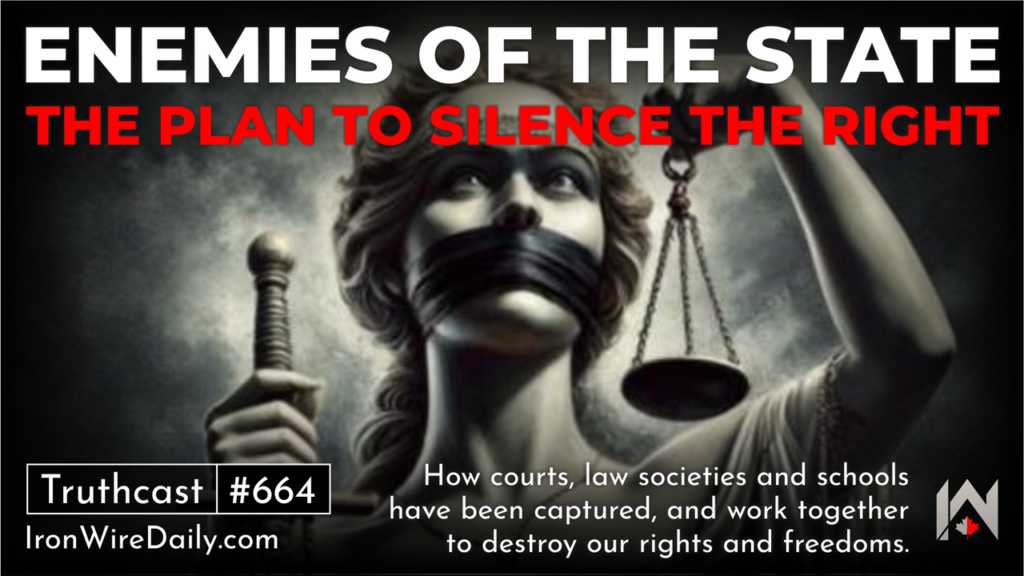


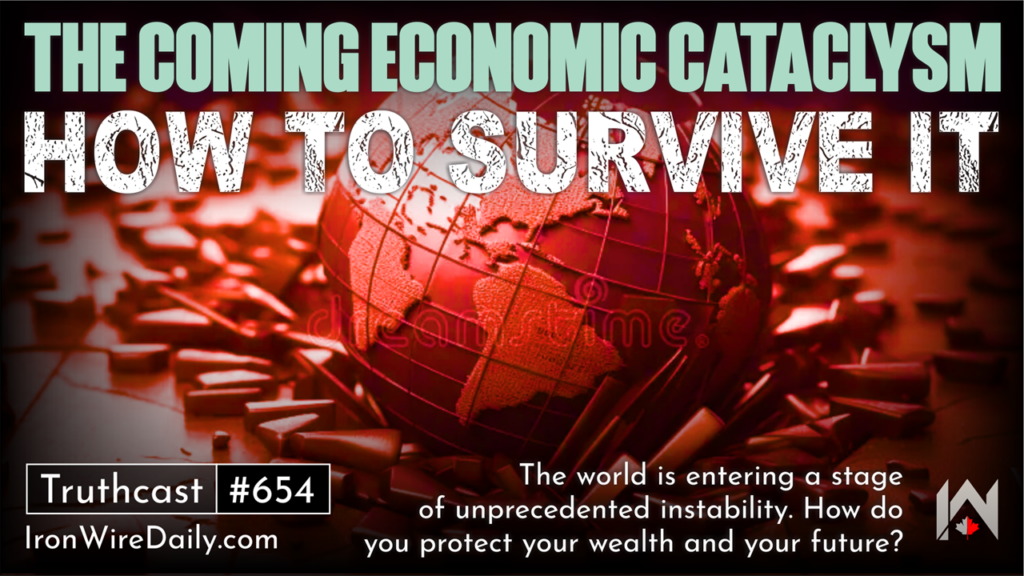


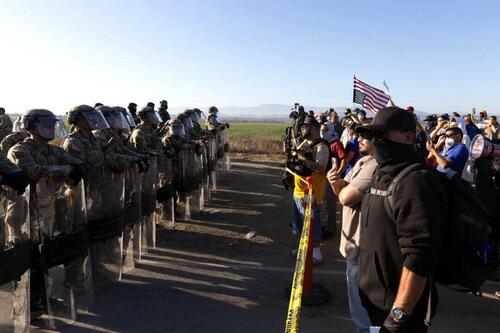



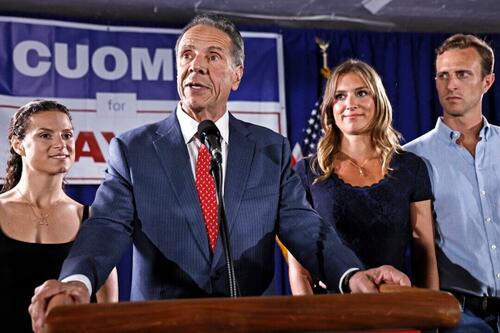
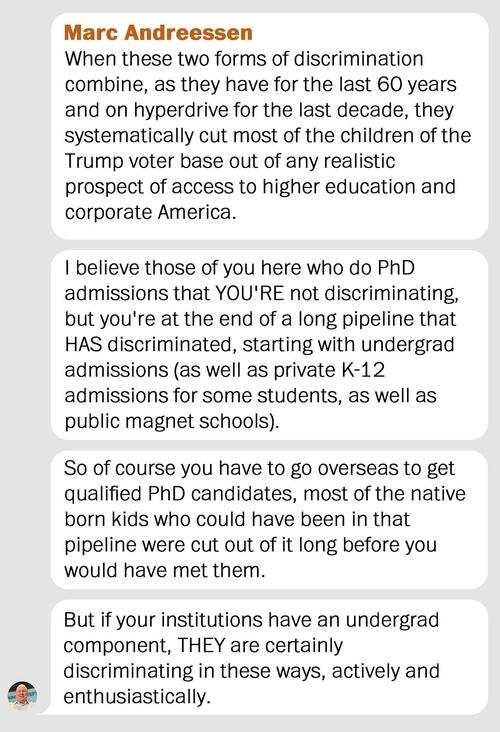

Just wait until his two neighbours need food.
This is very concerning.
I live in the area, same riding, and would be willing to send to go fund me, reluctantly due to, their Convoy behavior, but I think it is important to help this farmer.
]eremy